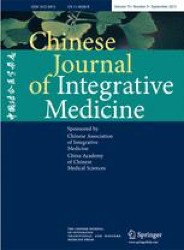Systemic Lupus Erythematosus
How to submit an article:
- Registered users can submit any published journal article that has a unique DOI (Digital Object Identifier) name or link to Research Hub.
- For example, you can paste the full DOI link:
https://doi.org/10.1109/5.771073or just the DOI name:10.1109/5.771073into the field above and click submit. - The person who is first to submit a valid article to Research Hub will forever be credited for it, and every article submission earns you +6 Research Points.
Systemic lupus erythematosus (SLE) is a chronic autoimmune disease that can affect various parts of the body, including the skin, joints, kidneys, heart, lungs, brain, and blood cells, and cause inflammation, pain, and damage to these tissues and organs.
Also known as: SLE
Published research studies are articles that present the findings of original research that has undergone a peer-review process and has been made publicly available in scholarly journals, books or other media.

Intermittent fasting: A promising dietary intervention for autoimmune diseases
2023 Oct Autoimmunity Reviews Barati M, Ghahremani A, Namdar Ahmadabad H
Systematic Review Intermittent Fasting Type 1 Diabetes Autoimmune Diseases Rheumatoid ArthritisIntermittent fasting may potentially influence autoimmune diseases like type 1 diabetes and rheumatoid arthritis, by reducing inflammation and supporting cellular repair mechanisms.

Potential Targets and Mechanisms of Jiedu Quyu Ziyin Decoction for Treating SLE-GIOP: Based on Network Pharmacology and Molecular Docking
2023 Mar 28 Journal of Immunology Research Li J, Chang R, Chen L, Qian S, Wang R, Lan J, et al.
The study identified 58 potential targets of JP in the treatment of SLE-GIOP, with five core targets being MAPK1, TP53, and MYC. Enrichment analysis revealed involvement in biological processes related to osteoblast proliferation and differentiation, and molecular docking indicated strong binding of JP with MAPK1, TP53, and MYC.
Network Pharmacology Systemic Lupus Erythematosus Jie Du Qu Yu Zi Yin Decoction
Investigating the Molecular Mechanism of Xijiao Dihuang Decoction for the Treatment of SLE Based on Network Pharmacology and Molecular Docking Analysis
2022 Jan 20 BioMed Research International Wei F, Song Y, Gong A, Pan C, Zhuang Y, Zhang X, et al.
The study identified 30 potential active ingredients and 289 potential targets of XJDHT, with 129 intersection targets between XJDHT and SLE. Network topology analysis revealed 23 core targets, including AKT1, TNF, IL6, IL1B, and INS. GO and KEGG enrichment analyses suggested involvement in processes such as the response to lipopolysaccharide and signaling pathways like lipid and atherosclerosis. Molecular docking confirmed strong binding activity between XJDHT compounds and core targets, providing a theoretical basis for further clinical and experimental studies on XJDHT in treating SLE.
Network Pharmacology Systemic Lupus Erythematosus Xi Jiao Di Huang Decoction
Chinese Herbal Medicine for Systemic Lupus Erythematosus: A Systematic Review and Meta-analysis of Randomized, Placebo-Controlled Trials
2021 Jul 28 Chinese Journal of Integrative Medicine Wang Y, Han M, Pedigo CE, Xie Z, Wang W, Liu J
Systematic Review Meta-Analysis Chinese Herbal Medicine Systemic Lupus ErythematosusChinese herbal medicine presents beneficial effects in controlling disease activity and lowering glucocorticoid dosage in systemic lupus erythematosus patients.

A novel model for exploring the correlation between patterns and prescriptions in clinical practice of traditional Chinese medicine for systemic lupus erythematosus
2014 Jun Complementary Therapies in Medicine Liu CY, Wu WH, Huang TP, Lee TY, Chang HH
Clinical Study Dan Shen Systemic Lupus ErythematosusTraditional Chinese medical prescriptions showed a correlation with pattern diagnosis in the treatment of systemic lupus erythematosus.
Research insights are moderated by the Research Hub team and offer an at-a-glance overview of interesting research findings.

2023 Autoimmunity Reviews
Intermittent fasting may potentially influence autoimmune diseases like type 1 diabetes and rheumatoid arthritis, by reducing inflammation and supporting cellular repair mechanisms.
Systematic Review Autoimmune Diseases Intermittent Fasting Rheumatoid Arthritis Type 1 Diabetes
Intermittent fasting: A promising dietary intervention for autoimmune diseases
Barati M, Ghahremani A, Namdar Ahmadabad H

2021 Chinese Journal of Integrative Medicine
Chinese herbal medicine presents beneficial effects in controlling disease activity and lowering glucocorticoid dosage in systemic lupus erythematosus patients.
Systematic Review Chinese Herbal Medicine
Chinese Herbal Medicine for Systemic Lupus Erythematosus: A Systematic Review and Meta-analysis of Randomized, Placebo-Controlled Trials
Wang Y, Han M, Pedigo CE, Xie Z, Wang W, Liu J

2014 Complementary Therapies in Medicine
Traditional Chinese medical prescriptions showed a correlation with pattern diagnosis in the treatment of systemic lupus erythematosus.
Clinical Study Dan Shen
A novel model for exploring the correlation between patterns and prescriptions in clinical practice of traditional Chinese medicine for systemic lupus erythematosus
Liu CY, Wu WH, Huang TP, Lee TY, Chang HH
Review Articles
Review articles summarise and critically evaluate the current state of research on a specific topic or field by synthesising multiple primary research studies.

Intermittent fasting: A promising dietary intervention for autoimmune diseases
2023 Oct Autoimmunity Reviews Barati M, Ghahremani A, Namdar Ahmadabad H
Systematic Review Intermittent Fasting Type 1 Diabetes Autoimmune Diseases Rheumatoid ArthritisIntermittent fasting may potentially influence autoimmune diseases like type 1 diabetes and rheumatoid arthritis, by reducing inflammation and supporting cellular repair mechanisms.

Chinese Herbal Medicine for Systemic Lupus Erythematosus: A Systematic Review and Meta-analysis of Randomized, Placebo-Controlled Trials
2021 Jul 28 Chinese Journal of Integrative Medicine Wang Y, Han M, Pedigo CE, Xie Z, Wang W, Liu J
Systematic Review Meta-Analysis Chinese Herbal Medicine Systemic Lupus ErythematosusChinese herbal medicine presents beneficial effects in controlling disease activity and lowering glucocorticoid dosage in systemic lupus erythematosus patients.

Anti-Inflammatory and Immunomodulatory Effects of Paeonia Lactiflora Pall., a Traditional Chinese Herbal Medicine
2011 Jan Frontiers in Pharmacology He DY, Dai SM
In adjuvant arthritis rats, paeoniflorin exerted immunosuppressive effects. The beneficial effects of TGP in treating rheumatoid arthritis were verified by randomized controlled trials. The adverse events of TGP were mainly gastrointestinal tract disturbances, mostly mild diarrhea.
Review Article Shao Yao Immunomodulation Anti-InflammatoryClinical Trials
Clinical trials are research studies that involve people and are conducted to evaluate the safety and efficacy of new treatments or interventions, such as drugs, medical devices, or behavioural therapies.
Study Protocols
Published study protocols are detailed plans that outline the objectives, methodology, statistical analyses, and organisation of a research study that have been made publicly available for others to review and use as a reference.
Presentation Slides

Systematic Review
Intermittent fasting may potentially influence autoimmune diseases like type 1 diabetes and rheumatoid arthritis, by reducing inflammation and supporting cellular repair mechanisms.
Barati M, Ghahremani A, Namdar Ahmadabad H

Systematic Review
Chinese herbal medicine presents beneficial effects in controlling disease activity and lowering glucocorticoid dosage in systemic lupus erythematosus patients.
Wang Y, Han M, Pedigo CE, Xie Z, Wang W, Liu J

Clinical Study
Traditional Chinese medical prescriptions showed a correlation with pattern diagnosis in the treatment of systemic lupus erythematosus.
Liu CY, Wu WH, Huang TP, Lee TY, Chang HH
Executive Summary
Write an executive summary in the form of a blog article on the topic of "Research into Chinese medicine treatment for Systemic Lupus Erythematosus" summarising the research below and using language that can be easily understood by patients and avoiding medical jargon using a professional and caring tone of voice.
Write an executive summary in the form of a blog article on the topic of "Researched Chinese medicine treatments for Systemic Lupus Erythematosus" summarising the research below in an objective and easy to understand way, and using language that can be easily understood by patients. Group the article into Chinese medicine treatments first, followed by nutrition and other treatments. Avoid using medical jargon and use a professional and caring tone of voice.
Write me a concise but easy to understand executive summary on the topic of "Chinese medicine treatments for Systemic Lupus Erythematosus" based on the following research that I will give you. Your summary should be 2 paragraphs long in Australian English spelling and include references to the studies.
A Systematic Review published in 2023 in the journal Autoimmunity Reviews found that Intermittent fasting may potentially influence autoimmune diseases like type 1 diabetes and rheumatoid arthritis, by reducing inflammation and supporting cellular repair mechanisms. Extensive research was done through several electronic databases such as PubMed, Scopus, Embase, and Web of Science. Rigorous inclusion criteria were applied to filter the most relevant studies on the effects of intermittent fasting on autoimmune diseases. No reference to further research trials was mentioned in the methodology. The results indicate a potential link between intermittent fasting and the management of certain autoimmune diseases. Autoimmune diseases like type 1 diabetes, rheumatoid arthritis, and systemic lupus erythematosus exhibited improvements owing to the reduction in inflammatory markers, improvement in gut microbiota, and enhanced cellular repair resulting from autophagy induced by intermittent fasting. However, results concerning other autoimmune diseases like multiple sclerosis, systemic lupus erythematosus, thyroid diseases, and psoriasis were inconclusive.
A Systematic Review published in 2021 in the journal Chinese Journal of Integrative Medicine found that Chinese herbal medicine presents beneficial effects in controlling disease activity and lowering glucocorticoid dosage in systemic lupus erythematosus patients. An extensive search of seven electronic databases was conducted for all randomized controlled trials focusing on Chinese herbal medicine treating systemic lupus erythematosus. These trials could consist of Chinese herbal medicine used either independently or as an adjunct to conventional treatments, and trials up until August 16, 2020, were considered. Data was gathered with a particular focus on measurement outcomes such as the lupus disease activity index, traditional chinese medicine symptom scores, glucocorticoids dosage, main serological testing, and the occurrence of adverse events. The collected data was pooled and analyzed using Review Manager 5.3 software. The compiled data was resulted from thirteen randomized controlled trials with a total of 856 participants. The analyzed data revealed that compared to placebos, Chinese herbal medicine showed significant indications of reducing the lupus disease activity index and traditional Chinese medicine symptom scores. It also underscored a lowered dosage of glucocorticoids, decreased erythrocyte sedimentation rate, and increased levels of serum complement C4. No significant differences were noticed between Chinese herbal medicine and placebos when considering adverse events.
A Clinical Study published in 2014 in the journal Complementary Therapies in Medicine found that Traditional Chinese medical prescriptions showed a correlation with pattern diagnosis in the treatment of systemic lupus erythematosus. In the methodology, clinical data encompassing patterns and prescriptions from the electronic medical records of patients with lupus at a medical center were gathered and processed. A specific coding system, termed the B-code, was used to encode patterns and prescriptions, offering a platform for processing and statistical analysis. Nonlinear canonical correlation analysis was then performed to investigate the connection between the patterns and prescriptions. Regarding the results, from the 261 valid patient visits collected, a total of 46 patterns and 193 prescriptions were encoded into 57 B-codes. Yin, Vacuity, Heat, and Dampness were the most frequently observed B-codes both in patterns and prescriptions. Anemarrhena, Phellodendron, and Rehmannia Pill, along with Miltiorrhizae Radix, were identified as the most frequently used formula and herb, respectively. The most effective variable sets correlating the patterns and prescriptions were Water-rheum, kidney, and stasis. This suggests a rationale for pattern differentiation and the principle of treatment for systemic lupus erythematosus.
Moderation Tools
Topic
Sign In
Users not signed in are limited to viewing the 5 most recent items of content.